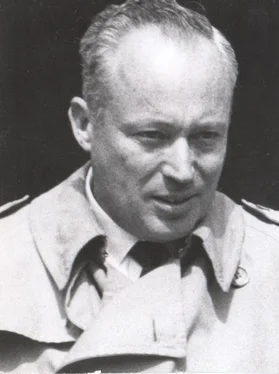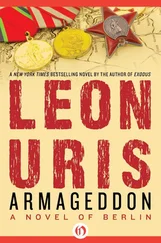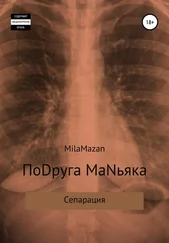“Tell Andrei ... to keep absolute discipline. Let them pass.” He spun the cranks of the phone to confirm his opinion, to assure himself. “This is Jerusalem. Atlas speaking. The Rhine Maidens are at Herod’s Palace and are taking Korah and Absalom to Egypt. Let them pass.”
In the bunker of the Revisionists at Nalewki 37, Samson Ben Horin faced the commander of his Chayal group who were spread along the roofs over Zamenhof near Ana Grinspan’s company. The Chayal officer, Emanuel, snorted at Ben Horin.
“We will not let them pass!”
Samson Ben Horin stroked his newly grown beard. He liked it. The liaison runner from Eden’s headquarters looked from Ben Horin to his officer.
“We are not obliged to carry out orders from Eden,” the officer prodded.
“You are obligated to take my orders,” Ben Horin answered. “By coincidence they are exactly the same. Let the Germans pass through.”
Emanuel was enraged. “The Germans are in a box!”
Ben Horin shrugged.
“You are a flunky of the Labor Zionists,” Emanuel cried.
“I shall relieve you of your command this instant if you cannot obey,” Ben Horin threatened angrily.
Emanuel sulked, simmered, calmed, and was returned to his post, distressed that Ben Horin had taken a position concurrent with that of the Joint Forces.
Clump! Clump! Clump! Clump!
Andrei crawled as close to the roofs edge as he dared. He looked over his people. Their sweaty hands tightened around their weapons. Black eyes blazed from hidden corners. Andrei poked his fist into the air in a “hold fire” signal.
Beneath him the Germans took the Jewish Militia toward the Umschlagplatz and Treblinka.
Andrei licked his lips. He sighted “Gaby,” the Schmeisser, on Sieghold Stutze’s heart. “Ah,” he whispered to himself. “What a lovely, magnificent target. So full of nice plump syphilitic blood.” He clenched his teeth, pulling his itching, wiggling finger off the trigger.
The Fighters strewn out above Zamenhof Street looked down on their tormentors, gnawing pains of restraint holding them from unleashing their wrath.
“Look at that juicy Austrian. Ah, Stutze ... Will I ever get such a lovely shot at you?” Andrei half cried to himself. “What a goddamn war!”
“Hello, Jerusalem,” Wolf Brandel said. “The Angel from Lebanon advises us that the Rhine Maidens have taken Korah and Absalom into Egypt. They are boarding the train for hell. All is clear.”
As the tail end of the German force disappeared out of the Stawki Gate, the hands gripping the guns and grenades and bottle bombs relaxed and their bodies slumped in exhaustion, drained by tension.
A waving of signal flags, rooftop to window, window to rooftop to street. A scampering of the runners. “All is clear.”
The generator in Mila 18 sputtered and spun into life. The lights flickered on. The children in Majdanek, lying tightly against Deborah on the floor, resumed their reading game and Rabbi Solomon lifted the chant of his prayer and Moritz the Nasher cut the double deck of cards for another round of sixty-six and Alexander wrote down the notes in the journal.
Simon Eden was doubled over the desk with exhaustion. Andrei came in and slammed him across the back. “Simon! Did I have that syphilitic Austrian in my gun sights! I ached from head to toe to blast his head off. What discipline! Not a whisper up there! Not a sign. Not for a single second did Stutze know he was under our guns! Simon! Simon! By God, we have an army!”
Simon nodded weakly.
“You know,” Andrei whispered confidentially, “I will wager anything you own that we can hold them for a week.”
Chapter Nine
OBERFÜHRER FUNK ARRIVED IN Berlin somewhat regretful that he had allowed Horst von Epp to muddle his thinking. It was preposterous to suggest a new set of tactics for the liquidation of the ghetto. He should have followed orders and returned with heavily armed men the day after the January 18 act of banditry. But it was too late. He had no choice. When Funk proposed Von Epp’s theory of pacifying the Jews he was chagrined that Himmler thought it an excellent idea. In fact, it was so well received that Funk took full credit for thinking up the entire scheme.
In Berlin, problems were cropping up everywhere. The shock of the catastrophe at Stalingrad rocked the High Command, which was now facing a mammoth Russian winter counteroffensive.
In North Africa, Rommel’s magnificent Afrika Korps was engaged in furious actions with the ever-strengthening Allied Forces. A second disaster seemed in the making.
Italy was all but militarily impotent. One could smell that Italy was about to defect politically, as well.
In the air, the Luftwaffe had failed in its mission to crush the morale of the dogged Englishmen, and now all of England was being transformed into a gargantuan air field poised to return German bombs tenfold.
In the Pacific, the Americans had wrested the initiative. They seized island after island, which the Japanese had been certain was beyond the stamina of the American fighting men. The Japanese had not reckoned the extent of the uncommon valor of the United States Marine Corps.
Throughout the German Empire one could sense the restless awakening of the conquered. Despite brutal reprisals for underground activities, secret armies continued to grow. Indeed, Yugoslavia was gathering a force potent enough to divert badly needed German divisions off the eastern front. The policing of Greece and Poland required men and arms needed elsewhere.
To a lesser degree, sabotage, assassination, harassment, espionage flared up from Prague to Copenhagen to Oslo to Amsterdam to Brussels. Pin pricks, indeed, but enough stings were causing a painful swelling. Even in northern Italy a partisan army was forming.
This was the sudden realization of the brute who thought himself invincible being felled and stunned for the first time and crawling to his feet with a new appraisal of his adversary. Germany was stunned and smarted. The contemptuous smile was wiped from his lips. He was in pain.
Funk’s visits with Eichmann at Gestapo 4B showed that Eichmann was still going about his job of rounding up the Jews with uncommon zeal, but he was hitting stone walls. Finland flatly defied German orders to turn over the Jews and threatened to use the Finnish army to defend them. A second flat refusal came from the Bulgarians. Then Denmark. King Christian of Denmark responded to the German order for Jews to wear the Star of David by putting on the first one himself and ordering all Danes to follow suit in a display that one Dane was the same as the other.
In France and Belgium and Holland, Jews were hidden in convents and attics, and even the Rumanians balked and the Hungarians split on the issue. Italy refused to become a partner to genocide.
Although Eichmann’s agents were able to flush out Jews, get them through subterfuge and threat and strong-arm methods, nowhere in western Europe were they for sale for extra rations as they were in Poland, Ukrainia, and the Baltics.
Funk arrived in Berlin during a period of agonizing reappraisals. Himmler, Eichmann, and those most interested in the final solution agreed that the Warsaw ghetto, largest symbol of European Jewry, had to be liquidated quietly. It would indeed be a terrible propaganda setback for Berlin to admit the Jews were capable of fighting. It would be worse if Jews were to conduct the first rebellion against the Nazis that could start a chain reaction among the restless undergrounds.
Alfred Funk returned to Warsaw just long enough to turn the matter of peaceful liquidation over to the district Kommissar, Rudolph Schreiker. He left immediately for Denmark, where the pesky Danish underground was chopping the rail system to bits and leading in British bombers. Denmark, symbol of the “little Aryan” brother, was behaving badly.
Читать дальше












